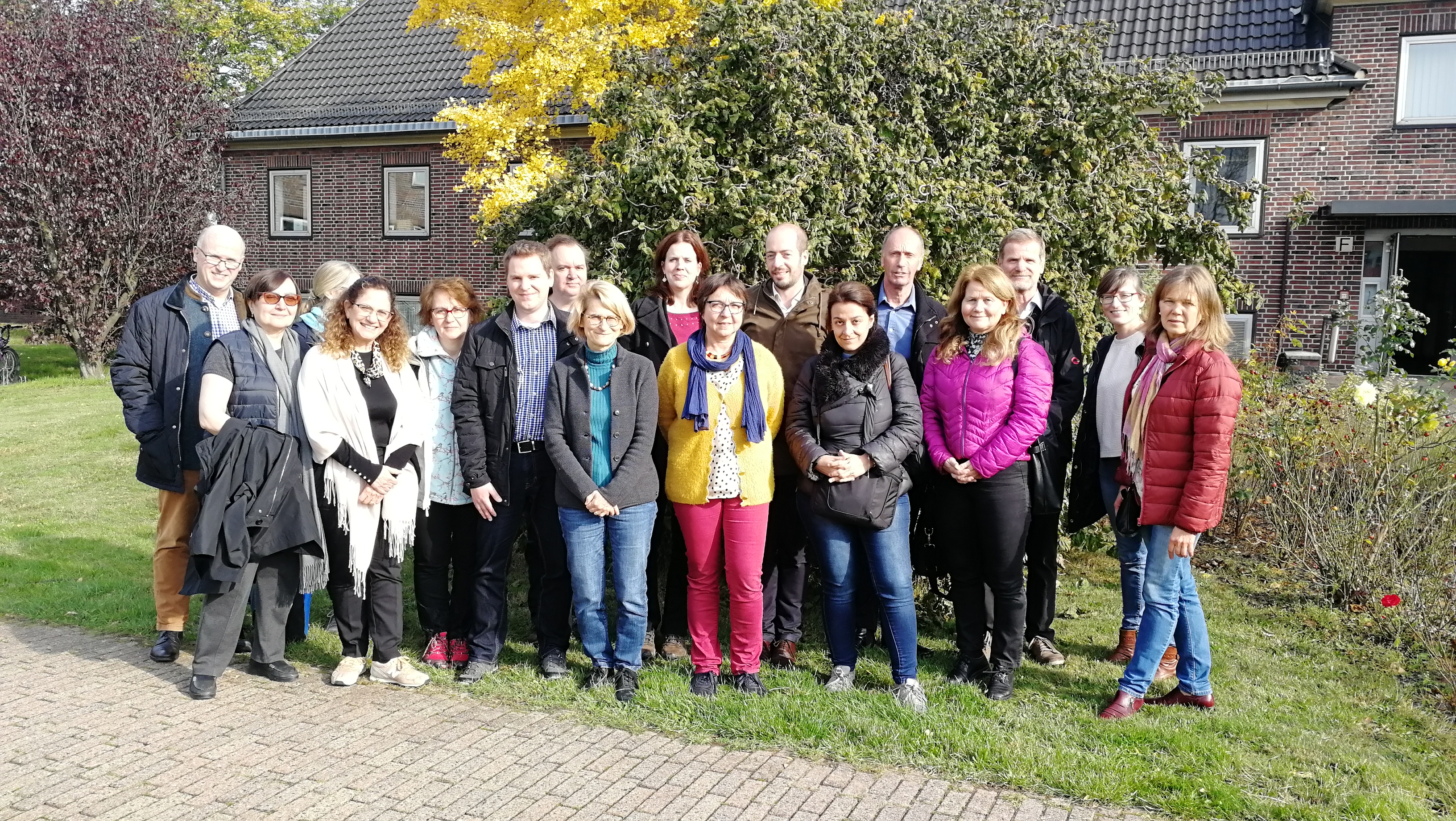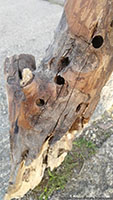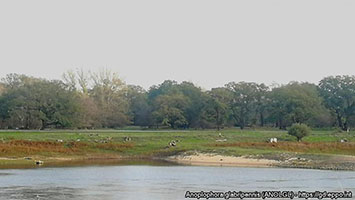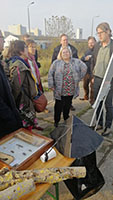
60th Meeting of the Panel on Phytosanitary Measures
Braunschweig, DE, 2019-10-22/24
The Panel met in Braunschweig (DE) on 2019-10-22/24 at the kind invitation of the Julius Kühn Institute (JKI). The main task of this Panel is to evaluate risks presented by specific pests and design phytosanitary measures to avoid their introduction and spread.

Information projects
The recent work on the improvement of Global Database ![]() was presented in particular:
was presented in particular:
- Inclusion of references for host plants and explanations concerning the host categories (e.g. minor/major)
- Creation of dynamic datasheets (in progress, see datasheet project below)
As part of the project to update datasheets for all EPPO A1/A2 pests, a pilot project on 11 datasheets for important pests of the Mediterranean area was launched during the summer with Euphresco and the International Center for Advanced Mediterranean Agronomic Studies (CIHEAM). The first dynamic datasheets will be presented to the Panel in March 2020.
Alert List
The recent additions to the EPPO Alert List ![]() were presented. The Panel suggested the addition of Elasmopalpus lignosellus (lesser cornstalk borer) to the Alert List. This pest will be further considered by the Secretariat together with pests previously suggested.
were presented. The Panel suggested the addition of Elasmopalpus lignosellus (lesser cornstalk borer) to the Alert List. This pest will be further considered by the Secretariat together with pests previously suggested.
The Panel reviewed an Irish PRA on Lambdina fiscellaria and agreed that it should also added to the Alert list.
Pest Risk Analysis
The Panel discussed the risk related to new strains of pests and the challenges of regulating pests below the species level. The outcome of the discussion will be presented at the next Working Party for further consideration.
The new developments on the EPPO platform on PRAs ![]() were presented. This online database allows EPPO Member Countries to share their national PRAs and already includes all EPPO and EFSA PRAs. The platform will be presented during the Technical Consultation among Regional Plant Protection Organizations (RPPOs). The Secretariat already received requests from non-EPPO countries willing to share their PRAs on the platform and indeed the tool may be of interest to other RPPOs and non-EPPO NPPOs.
were presented. This online database allows EPPO Member Countries to share their national PRAs and already includes all EPPO and EFSA PRAs. The platform will be presented during the Technical Consultation among Regional Plant Protection Organizations (RPPOs). The Secretariat already received requests from non-EPPO countries willing to share their PRAs on the platform and indeed the tool may be of interest to other RPPOs and non-EPPO NPPOs.
Ms Chiumenti (EFSA) presented the EFSA pest categorization on non-EU viruses and viroids of Vitis ![]() . The Panel concluded that the EFSA pest categorization provides a good basis to develop a post-entry quarantine Standard for Vitis and to revise Standard PM 4/8 on Pathogen-tested material of grapevine varieties and rootstocks
. The Panel concluded that the EFSA pest categorization provides a good basis to develop a post-entry quarantine Standard for Vitis and to revise Standard PM 4/8 on Pathogen-tested material of grapevine varieties and rootstocks ![]() .
.
The EPPO Draft PRA on Naupactus xanthographus was discussed during the Panel. Risk management measures will be further discussed at next Panel meeting.
EPPO listed pests
Update on the situation of EPPO Listed pests
The situation of Anoplophora glabripennis in the EPPO region was discussed and countries were asked to provide an update for the next Panel meeting.
Changes in taxonomy of EPPO Listed pests
The Panel noted that Aeolesthes sarta (Coleoptera: Cerambycidae) should be renamed Trirachys sartus in the EPPO A2 List.
Stagonosporopsis andigena (synonym: Phoma andina) is listed on the A1 List. As Phoma andina var. crystalliniformis is now considered as a separate species (Stagonosporopsis crystalliniformis), the Panel recommended the addition of S. crystalliniformis to the A1 List and the revision of the datasheet on S. andigena to include both species.
Risk management measures
The Panel discussed the concept of pre-entry quarantine. It noted that unlike post-entry quarantine and pest free place of production for which International Standards for Phytosanitary measures have been developed (see ISPM 10 and ISPM 34 ) as well as EPPO Standards (see PM 5/8 Guidelines on the phytosanitary measure ‘Plants grown under complete physical isolation ![]() ), there is very limited reference to pre-entry quarantine in international Standards. The Panel agreed that the concept pre-entry quarantine usually corresponds to a defined period of observation of consignments before they are exported, to determine if pests are present. More guidance will be provided to Expert Working Groups performing PRAs on the use of the different measures.
), there is very limited reference to pre-entry quarantine in international Standards. The Panel agreed that the concept pre-entry quarantine usually corresponds to a defined period of observation of consignments before they are exported, to determine if pests are present. More guidance will be provided to Expert Working Groups performing PRAs on the use of the different measures.
Following national PRAs prepared on Meloidogyne ethiopica and M. luci (Slovenian PRA) and on M. graminicola (Italian PRA), the Panel recommended that the conditions for establishing a pest free place of production and a pest free production site for Meloidogyne species should be further discussed during the Panel on Diagnostics in Nematology and the next Panel on Phytosanitary Measures.
The EPPO Secretariat presented the progress made with the compilation of the risk management options recommended by EPPO in individual PRAs and PM 8 ![]() Standards.
Standards.
Standards needing update
As all information available in PM 3/54 Growing plants in growing medium prior to export is now included in ISPM 40 ![]() , the Panel recommended withdrawing this EPPO Standard.
, the Panel recommended withdrawing this EPPO Standard.
The Panel recommended updating PM 3/66(2) Guidelines for the management of plant health risks of biowaste of plant origin ![]() . Feedback on the use of composting at national level will be requested from EPPO Member Countries.
. Feedback on the use of composting at national level will be requested from EPPO Member Countries.
Update on projects
The ongoing and future Euphresco ![]() projects relevant to the Panel on Phytosanitary Measures were presented. The main objectives of the VALITEST
projects relevant to the Panel on Phytosanitary Measures were presented. The main objectives of the VALITEST ![]() project were presented and a discussion with risk managers on how choices of diagnostic tests are made will be organized at the next meeting. This issue is discussed in the Standard PM 7/76
project were presented and a discussion with risk managers on how choices of diagnostic tests are made will be organized at the next meeting. This issue is discussed in the Standard PM 7/76 ![]() on the Use of EPPO diagnostic protocols section 5.
on the Use of EPPO diagnostic protocols section 5.
A new project FF-IPM ![]() on fruit flies was presented. The objective was to engage NPPOs as early as possible in this project which will work on topics such as surveillance and import inspection.
on fruit flies was presented. The objective was to engage NPPOs as early as possible in this project which will work on topics such as surveillance and import inspection.
Other
The Panel recommended that collaboration between countries (e.g. to limit the spread of a pest) should be highlighted in the new EPPO Strategy 2021-2025. The Panel had the opportunity to visit the Anoplophora glabripennis outbreak area in Magdeburg.



More pictures of the field visit ![]()
The next Panel meeting is planned on 2020-03-24/26 at the EPPO headquarters in Paris.
